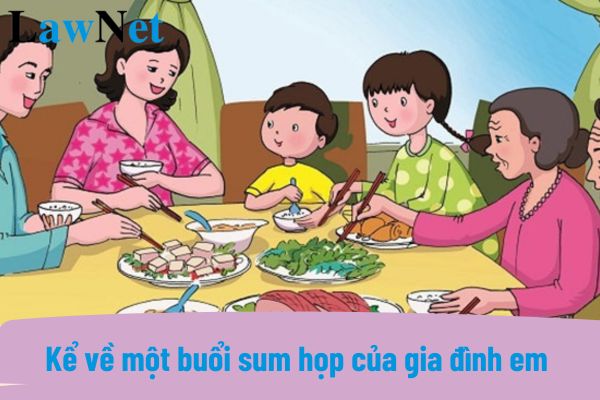Vietnam: What are the sample essays telling about a family reunion for 5th-grade students? What are the 05 literary knowledge required for 5th-grade students?
What are the sample essays telling about a family reunion for 5th-grade students in Vietnam?
A family reunion is a precious moment when all the family members gather together, sharing stories, joys, sorrows, and feelings. This is a chance for everyone to bond, strengthen relationships, and create beautiful memories.
Students may refer to the following What are the sample essays telling about a family reunion for 5th-grade students in Vietnam?in Vietnam:
|
Sample essays telling about a family reunion for 5th-grade students
|
*Note: The information about the What are the sample essays telling about a family reunion for 5th-grade students in Vietnam?is for illustrative purposes only./.

What are the sample essays telling about a family reunion for 5th-grade students in Vietnam? What are the 05 literary knowledge required for 5th-grade students? (Image from Internet)
What are the 05 literary knowledge required for 5th-grade students in Vietnam?
Under Section 5 of the general education program for the Vietnamese language issued with Circular 32/2018/TT-BGDDT, the 05 literary knowledge required for 5th-grade students in Vietnam include:
- Themes
- Ending of the story
- True stories and imaginative stories
- Details, time, and location in the story; images in poetry
- Characters in theatrical scripts and dialogue
What are the assessment methods for the 5th-grade Vietnamese language?
Under Section 7 of the general education program for the Vietnamese language issued with Circular 32/2018/TT-BGDDT, the assessment methods for the 5th-grade Vietnamese language are as follows:
- Regular assessment is conducted throughout the teaching process, organized by subject teachers.
- The assessment forms include teacher assessment of students, peer assessment among students, and self-assessment by students.
- Teachers can conduct regular assessments based on daily observations and recordings of students, activities of answering questions or presenting working on tests, writing analyses and literary feedback, writing summaries, conducting research projects, performing research assignments, etc.
- Periodic assessment is conducted near or at the end of a learning phase (end of semester, end of schooling cycle) organized by the educational institution to serve teaching activity management, ensure educational quality, and serve program development and study materials.
- Periodic assessment is usually through written tests or exams.
- Tests and exams could require an open-ended essay format (one or more questions);
- It can combine objective multiple-choice (objective multiple-choice questions) and open-ended essay formats to evaluate reading comprehension and essay writing on a particular subject according to each type of text learned in the program.
- An oral test format (to evaluate speaking and listening) might be employed if deemed necessary and feasible.
- In assessing final learning results for each school year and schooling cycle, it's necessary to innovate the assessment methods (test structure, questioning method, level of difficulty resolution, etc.); use and explore resources to ensure the assessment requirements reflect students' capabilities, overcoming the situation where students only memorize or copy available materials.
- Avoid reusing learned texts for precisely assessing reading comprehension and analysis, and artistic appreciation skills.
- Regardless of the assessment method, it must ensure principles allowing students to express, and show traits, language competence, literary competence, imaginative thinking, and logical thinking, their thoughts and feelings, not borrowed or copied.
- Encourage writing with personality and creativity.
- Students should be guided to understand the goals, methods, and the system of criteria used to evaluate these qualities and competencies.

